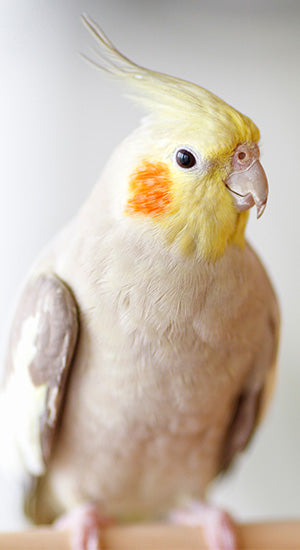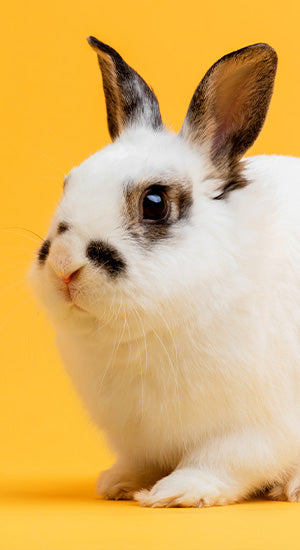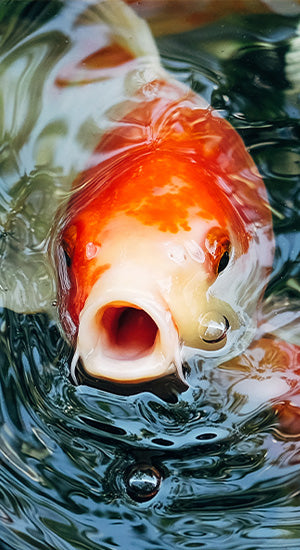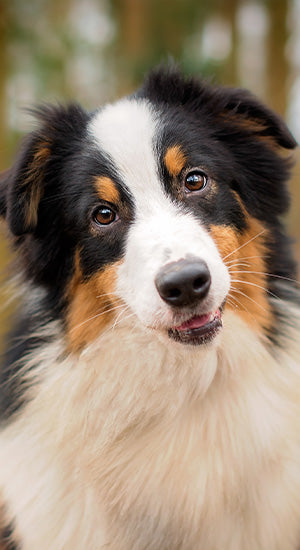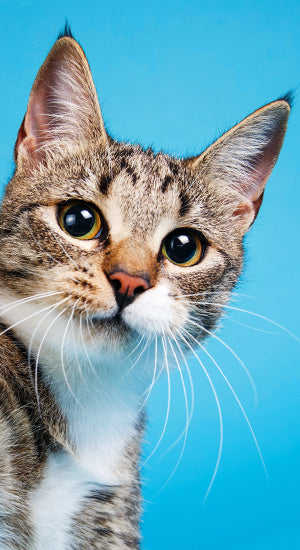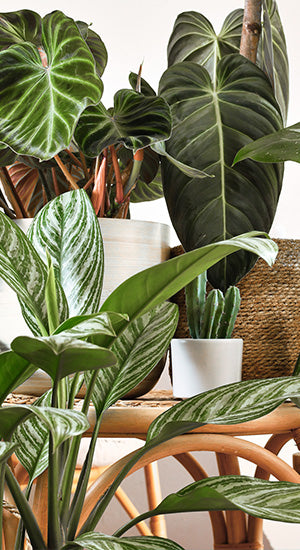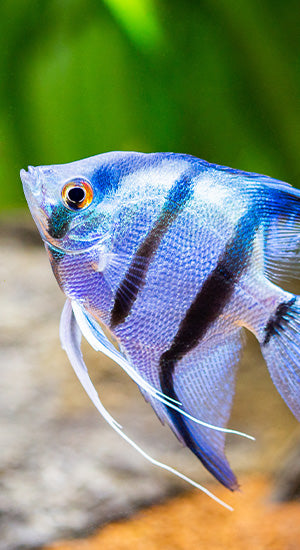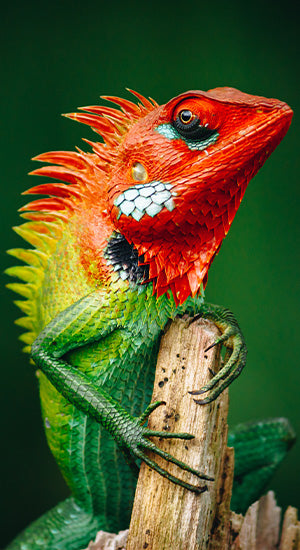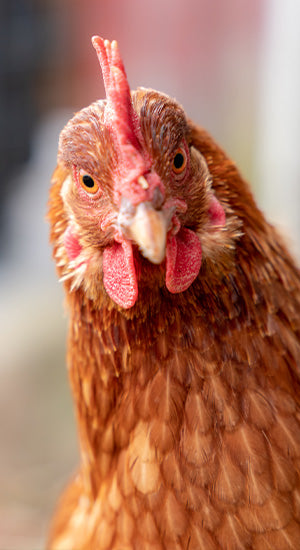What's That Smell? Pets and Toxic Scents
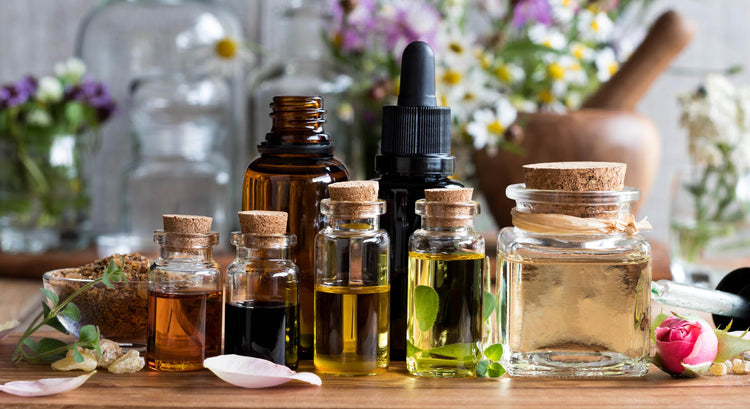
The holidays give many reasons to burn that candle or diffuse those incense - maybe you want the house to smell like gingerbread, maybe having family over is stressful and you need that calming Lavender aroma. Either way, it is important to know what is safe and unsafe for your pets beforehand.
Candles
Scented candles can release volatile organic compounds as well as toxins like lead, naphthalene, formaldehyde, and phthalates. Synthetic fragrances and carcinogenic soot from paraffin candles can aggravate respiratory conditions like asthma in humans and pets.
Dogs: In addition to the harm caused by the burning of candles and the release of artificial chemicals into the air, the delicious smell of your holiday candles can entice dogs to nibble on the wax or ingest oils. Ingestion of most candles will generally lead to nothing more than an upset stomach and diarrhea. (and ruin your candle, too)
Cats: Many candles use paraffin wax which produces highly toxic carcinogens when burned such as Limonene (citrus scent), Alpha-pinene (pine scent), Beta-pinene (pine scent), Ethanol and Acetone.
Birds: Birds have highly efficient respiratory systems in order to absorb the extra oxygen needed to power flight muscles. This means that any gas will be absorbed quickly - not just oxygen. Scented candles release toxins when burned, so only unscented candles should be used in bird homes. (Be aware of the open flame). Beeswax candles are generally safe and unscented unless they are imported and contain lead wicks. Most wicks are made from zinc or zinc alloy, which can be quite toxic to birds when burned. Non-toxic wick alternatives are unbleached cotton, paper or wood.
Small Animals: Harsh chemicals in the air of your home can cause stress or irritation on your pet’s airway. Small animals have a stronger sense of smell than humans do, so they experience the effects of candles more intensely. Since they are smaller than humans, they naturally are more sensitive to the harmful effects of any substance they come in contact with.
Essential Oils
Essential oils are the volatile organic compounds extracted from plants that contribute to their fragrance and taste. Pets are especially sensitive to these products and depending on the concentration and formulation, just a few drops of these oils can cause severe illness. Note: Tea Tree Oil is toxic to ALL pets.
Dogs: Dogs’ noses are much more powerful than ours, so any oils you use should be extremely diluted. Placing a few drops of lavender oil on a dog’s bedding may help calm them, or it may just cause further stress. Oils used improperly can also lead to changes in behavior, adverse central nervous system effects, and respiratory problems. Some essential oils are poisonous to dogs. This includes oil of cinnamon, citrus, pennyroyal, peppermint, pine, sweet birch, tea tree (melaleuca), wintergreen, and ylang ylang. If your pup can reach the essential oil you put on him and licks it off, it could result in gastrointestinal upset.
Cats: If ingested — such as after getting on your cat's fur and then licked off during grooming — certain essential oils can cause digestive upset, neurologic problems, and other, more serious concerns in cats. And this is not to mention the irritation these oils can cause if they come into contact with a cat's sensitive skin, or the way some oils could lead to irritation of a cat's sensitive nose or lungs.
Birds: Essential oils should never be used in the breathing space of parrots. Aerosolized products can be very dangerous as they will destroy a birds' air sacs over time and result in respiratory complications that can be life threatening.
Small Animals: It is not recommended to use essential oils for the same reason it's not recommended to use pine or cedar wood shavings for your Rabbit or small pet - Oils contain many compounds that can accumulate in their respiratory system over time and cause illness.
Potpourri
Other than the essential oils in potpourri, the cationic detergents can be extremely harmful to your pet. Cationic detergents can be caustic. This means that if ingested, it can actually burn the mouth and tongue. With eye or skin contact, there can be severe pain.
Dogs: Very young dogs and puppies, and dogs with liver disease are more sensitive to the effects of Potpourri. Liquid potpourri can also irritate or burn the skin and mouth.
Cats: The scent of dry potpourri can be quite irritating to their sensitive noses. If your cat nibbles on some of the potpourri, it may cause digestive upset or even a digestive obstruction, which could require surgery to remove from the stomach or intestines. Oils in potpourri pose the same risks to cats as mentioned in the Essential Oils section above.
Birds: The essential oils and the cationic detergents in potpourri are extremely dangerous for your birds' sensitive respiratory system and should never be used around them.
Small Animals: Small animals have a very keen sense of smell so any use of potpourri should be in a room that your pet can't go in. Many curious pets may also take a bite out of your potpourri which is another reason to keep it in a separate room.
Sprays & Deodorizers
Perfumes, air fresheners and cleaners are all considered volatile organic compounds (VOC's) that release chemicals into the air that can be dangerous to our health and our pets. When the chemicals from the VOC's volatilize (evaporate) at room temperature, they become part of the air we breath. When we release VOC's in warmer environments (like in the winter when we all turn our heaters on) they release even more chemicals into the air which means we breath in a lot more chemicals - and so do our pets.
Dogs: If your dog manages to ingest perfume, aftershave, etc. they may be in danger as many of these self-care products contain ethanol which is highly toxic to your dog. It is recommended to limit exposure of perfumes, lotions, etc. to your dog.
Cats: Though they may help your home smell good, room sprays and deodorizers can also trigger an asthma or coughing attack in certain pets. Asthma in cats (“feline allergic bronchitis”) can cause coughing spasms due the respiratory irritating effect of these sprays when breathed in.
Birds: Air fresheners, including plug-in air fresheners and scented sprays are considered unsafe. Bird deaths from using Febreze in the home have been reported so until new research proves it safe, do not use it in bird homes. To safely freshen the air, simmer spices like cinnamon, cloves, vanilla, and citrus rinds and provide fresh outdoor air whenever possible.
Small Animals: Although they don't have a respiratory system as sensitive as birds, small animals are still very sensitive to aerosolized fragrances and exposure should be limited to reduce the risk of respiratory complications.
Incense
The human respiratory system is not as sensitive as our pets' which is why most people aren't bothered by incense. Yes, they smell great, but they also produce VOC's like benzene, formaldehyde, butadiene and styrene, along with toxic gases like carbon monoxide and carbon dioxide.
Dogs: If you choose to burn incense, do so in a well ventilated room or by a window to allow fresh air to circulate inside. Some aromas can cause headaches for dogs so it is important that the smell is not too strong (remember they have a more sensitive sense of smell than we do!)
Cats: Though it's a popular way to add a pleasant scent and feeling of zen to many homes, incense combines many of the worst qualities when it comes to harm for cats. Cats can be extremely sensitive to smoke, which is a major factor in worsening, and perhaps even causing, cat asthma and other respiratory conditions. Making matters worse, the aromatic plant materials and essential oils used to create the scent in incense can also lead to all the other problems mentioned above.
Birds: As mentioned above, any aerosols or sprays are very dangerous for your birds' air sacs and should not be used around your feathered friend.
Small Animals: Your small animal will smell the incense more strongly than you do so it's best to burn them in a separate room if you choose to do so. Some aromas may also upset them or give them headaches if too strong.

